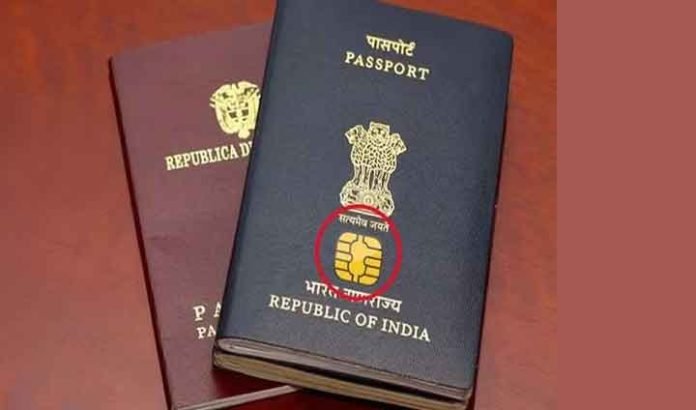
The Ministry of External Affairs has recently announced that the pilot project of e-passports will begin in May 2023. The first phase of this project will involve issuing 10 lakh e-passports, with service centers being selected based on the volume of passport requests they receive. Eventually, e-passports will replace traditional paper passports altogether, with plans already underway to replace old passports.
By introducing the e-passport facility, India will adopt the Civil Aviation Organization standards, which will simplify immigration for Indian citizens in over 70 countries. E-passports will be fully electronic, with all personal information recorded in a chip. By placing the passport near a sensor, all information will be available on a computer screen.
Currently, India has approximately 10 crore passport holders, all of whom will have their paper passports converted into e-passports. This conversion is set to occur over the next five years, with the booklet containing the chip being printed at the Indian Securities Press in Nashik.
Technical infrastructure is being developed to support the passport management system, interoperability test, project management unit, e-personalization, e-passport verification, and immigration check posts. The goal is to have this entire network completed by June of next year.
The Advantages of E-Passports
E-passports offer several advantages over traditional paper passports. They reduce the risk of passport forgery, as the electronic chips store all necessary personal information in a secure manner. The chip can also hold a digital photograph of the passport holder, which can be used to authenticate their identity.
Moreover, e-passports simplify the immigration process, as the data stored in the chip can be read quickly and efficiently, thereby reducing wait times at immigration check posts. Additionally, e-passports can store additional information such as travel history, which may be useful in the event of an emergency.
Conclusion
The introduction of e-passports in India is a significant step towards streamlining the passport issuance and immigration process. With the adoption of Civil Aviation Organization standards, Indian passport holders will benefit from easier travel to over 70 countries. E-passports also offer several advantages over paper passports, including enhanced security and simplified immigration procedures. As the government works to convert all paper passports into e-passports, it is essential to ensure that the necessary technical infrastructure is in place to support this transition.















